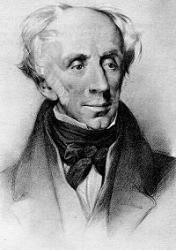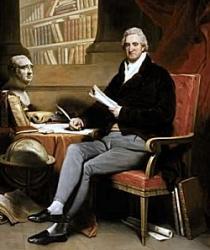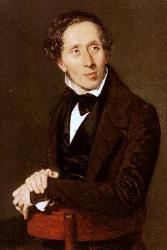Planning worship?
Check out our sister site, ZeteoSearch.org,
for 20+ additional resources related to your search.
- |
User Links
Person Results
‹ Return to hymnal




Export as CSV
American Unitarian Association
Publisher of "" in Hymn, Tune, and Service Book for Sunday Schools Boston
American Unitarian Association
William Wordsworth

1770 - 1850 Person Name: Wordsworth Hymnal Number: 15 Author of "New Song" in Hymn, Tune, and Service Book for Sunday Schools Wordsworth, William, the poet, the son of an attorney, was born at Cockermouth in 1770, and educated at St. John's College, Cambridge, where he graduated B.A. in 1791. Devoting himself to literature, and especially to poetry, he gradually rose into the front rank of English poets. His works include Lyrical Ballads, 1798; Poems; The Prelude; The Excursion, 1814, &c. All his poetical productions were collected and republished under his own supervision in 7 vols., in 1842. He died at Kydal Mount, near Grasmere, in 1850. Notwithstanding his rank and reputation as a poet, his pieces used as hymns are limited to the following extracts from his poems:—
1. Not seldom clad in radiant vest. Christ, the Unchangeable. This is No. v. of five "Inscriptions supposed to be found In and near a Hermit's cell, 1818." It is in 5 stanzas of 4 lines, and is given in his Poetical Works, 1831, vol. iii., p. 290. It is in Stowell's Selection of Hymns, 1831-77; the American Plymouth Collection, 1855, &c.
2. Up to the throne of God is borne. Noonday. This is entitled "The Labourer's Noon-Day Hymn," is dated 1834, and is in 6 stanzas of 4 lines. (Poetical Work, 1837, vol. v. p. 122.) It is in common use in an abridged form, beginning with stanza i., and the latter part is also given in Martineau's Hymns, 1840, as "Look up to heaven, the industrious sun," as No. 535.
-- John Julian, Dictionary of Hymnology (1907)
William Wordsworth
George Horne
1730 - 1792 Person Name: Horne Hymnal Number: 144 Author of "Autumn Wanings" in Hymn, Tune, and Service Book for Sunday Schools Home, George, D.D., born at Otham, near Maidstone, Kent, Nov. 1, 1730, and educated at Maidstone, and University College, Oxford (B.A. 1749). He subsequently became a Fellow, and in 1768 Master of Magdalen College. He was also Vice-Chancellor of his University, 1776; Dean of Canterbury, 1781, and Bishop of Norwich, 1791. He died Jan. 17, 1792. Bp. Home is widely known through his Commentary on the Book of Psalms. His hymns were included in his Memoirs by the Rev. W. Jones, 1795: again, in his Essays and Thoughts on Various Subjects with Hymns and Poems, 1808: and again, in his Works, 1809.
Of his Hymns the best known is:—
See the leaves around us falling [Autumn], which appeared in his Memoirs, 1795, pp. 223-4, in 10 stanzas of 4 lines, and entitled "The Leaf. 'We all do fade as a leaf.' Isa. lxiv. 6." It is also found in his Essays, 1808, and Works, 1809. Collyer included it in an abbreviated form in his Collection, 1812, from whence it passed into modern Nonconformist hymnals. It was brought into use in the Church of England by Cotterill through his Selection, 8th ed., 1819.
Bishop Home's translation of the Latin Grace, “Te Deum patrem colimus" (q.v.):— "Thee, Mighty Father, we adore," has been strangely overlooked by hymnal compilers.
-- John Julian, Dictionary of Hymnology
George Horne
William Roscoe

1753 - 1831 Person Name: Roscoe Hymnal Number: 45 Author of "The two Commandments" in Hymn, Tune, and Service Book for Sunday Schools Roscoe, William, the father, was born March 8, 1753, in Liverpool, of humble origin. After very meagre schooling, and three years of work in his father's market garden, he was articled to an attorney, and subsequently practised in Liverpool till 1796, when he withdrew from the profession. From the first literature was his chief delight, and throughout a long career of public usefulness he united its pursuit with the efforts of enlightened patriotism and the advocacy of higher education and reform. Liverpool was a centre of the old slave-trade, and Roscoe was one of the first to raise his voice against the iniquity. At the age of 20 he had already uttered a protest in his descriptive poem Mount Pleasant, and in 1787 he published a longer poem, The Wrongs of Africa (Pt. ii. 1788), devoted to the subject. During his brief parliamentary experience as member for Liverpool, in 1807, he had further opportunity of advocating the cause of liberty and humanity. His first great historical work, the Life of Lorenzo dé Medici, was published in 1796, and the Life and Pontificate of Leo the Tenth, in 1805. After withdrawing from his legal practice, Roscoe had hoped to be able to devote himself entirely to letters, but the claims of friendship induced him in 1800 to enter into a banking business, which involved him in commercial troubles, ending in 1820 in his bankruptcy. His library had to be sold, but part of it was bought by friends, and presented to the Liverpool Athenæum, which in 1789 Roscoe had been instrumental in founding. In 1822 he published Illustrations of the Life of Lorenzo dé Medici, defending the views adopted in his former history, and two years later edited a new edition of Pope's works, with a life of the poet. He died June 30, 1831. (Cf. The Life of William Roscoe, by his son, Henry Roscoe, in 2 vols., London, T. Cadell, 1833.)
As a member of the congregation of Unitarians meeting in Renshaw Street Chapel, Liverpool, Roscoe took part in preparing A Selection of Psalms and Hymns for Public and Private Worship, printed for their use in 1818. He contributed eight hymns and the concluding anthem. Of these hymns the following are in common use at the present time:—
1. Let our loud song of praise arise. Praise.
2. Go, suffering habitant of earth. Life, a Warfare.
3. Great God, beneath Whose piercing eye. Divine Providence.
4. Thus said Jesus, Go and do. Love to our Neighbour.
5. What is the first and great command ? The Commandments.
These hymns are in several Unitarian collections, including Martineau's Hymns, 1840. No. 3 was written in 1788, as a "secular hymn" of ten stanzas, to be sung at the Benn's Garden Chapel on the Centenary of the Revolution.
--John Julian, Dictionary of Hymnology (1907)
William Roscoe
John Patrick
1632 - 1695 Person Name: Patrick Hymnal Number: 59 Author of "While shepherds watched their flocks by night" in Hymn, Tune, and Service Book for Sunday Schools John Patrick, a brother of Bishop Simon Patrick, was Prebendary of Peterborough, 1685; Precentor of Chichester, 1690; and preacher at the Charter-House, in the Chapel of which he was buried on his death, in 1695. His "Psalms of David, in Metre," were much used by Presbyterians and Independents until superseded by the compositions of Watts.
----Annotations of the Hymnal, Charles Hutchins, M.A. 1872.
John Patrick
John Bickersteth
1781 - 1855 Person Name: Bickersteth Hymnal Number: 194 Author of "Heavenly Shepherd, guide us, feed us" in Hymn, Tune, and Service Book for Sunday Schools Bickersteth, John, M.A., son of Henry Bickersteth, surgeon, born at Kirkby-Lonsdale, June, 19, 1781, and educated at the Grammar School of that town, and Trinity College, Cambridge, where he graduated in honours. Taking Holy Orders, he became Vicar of Acton, Suffolk, and subsequently Rector of Sapcote, Leicestershire. He died Oct. 2, 1855. The Dean of Lichfield is his second, and the late Bishop of Ripon his fourth son. In 1819 he published Psalms and Hymns, selected and revised for Public, Social, Family, or Secret Devotion, in which his hymns were included. A fourth edition, much enlarged, appeared in 1832. Of his hymns contributed to his Collection in 1819, the following were transferred to his brother's Christian Psalmody, 1833:—
1. Great God, let children to Thy throne. S. Schools.
2. Hast Thou, holy Lord, Redeemer. H. Communion.
3. Israel's Shepherd, guide me, feed me. H. Communion.
and were thus brought into wider notice than through his own work. No. 3 is sometimes given as "Heavenly Shepherd, guide us, feed us," as in the American Unitarian Hymns of the Spirit, Boston, 1864.
-- John Julian, Dictionary of Hymnology (1907)
John Bickersteth
William Henry Furness

1802 - 1896 Person Name: Furness Hymnal Number: 114 Author of "Christ who strengtheneth me" in Hymn, Tune, and Service Book for Sunday Schools Furness, William Henry, D.D., born in Boston, 1802, and graduated at Harvard in Arts and Theology, 1820. From 1825 he has been an Unitarian Pastor in Philadelphia. He is an accomplished scholar, and has been an active worker in reforms of various kinds. His publications are numerous and
include a Manual of Domestic Worship, 1840, and a translation of Schiller's Song of the Bell.
His hymns are somewhat numerous, and several of them have great merit. The best and most widely used are:—
1. Father in heaven, to Thee my heart. Resignation. Appeared in The Christian Disciple, 1822. It was repeated in this form in some of the older collections, and a few modern hymnals, including the Boston Unitarian Hymns [& Tune] Book, 1868. In 1846 it was given in Longfellow and Johnson's Book of Hymns as "Father in heaven, to Whom our hearts;" again in their Hymns of the Spirit, 1864, and in Dr. Martineau's Hymns of Praise & Prayer, 1873. This hymn is sometimes ascribed to "H. Ware," but in error.
2. Feeble, helpless, how shall I? Jesus our Leader. First published in the Cheshire Unitarian Christian Hymns, 1844, No. 272, in 5 stanzas of 4 lines. It is in several modern collections, including Lyra Sacra Americana, 1868: Thring's Collection, 1882.
3. Have mercy, 0 Father. Divine direction desired. Contributed to Dr. Martineau's Hymns of Praise and Prayer, 1873, in 2 stanzas of 6 lines.
4. Here in a world of doubt. Psalms xlii. Contributed to the N. Y. Lutheran Collection, 1834, and repeated in his Manual of Domestic Worship, 1840, Martineau's Hymns, &c, 1873.
5. Here in the broken bread. Holy Communion. Appeared in the Appendix to the Philadelphia Unitarian Collection, 1828. It is in a few modern collections, including the Boston Unitarian Hymn [and Tune] Book, 1868.
6. Holy Father, Gracious art Thou. Purity & Peace. Contributed to Dr. Martineau's Hymns, &c, 1873, in 1 stanza of 12 lines.
7. I eel within a want. Likeness to Christ desired. Appeared in the Cheshire (U. S.) Unitarian Christian Hymns, 1844, No. 687, in 4 stanzas of 4 lines. It is in a few collections both old and new.
8. In the morning I will raise [pray] . Morning. Appeared in his Manual of Domestic Worship, 1840, in 6 stanzas of 4 lines, and repeated in Dr. Martineau's Hymns, &c, 1873. In Longfellow and Johnson's Book of Hymns, 1846, and the Boston Unitarian Hymn [& Tune] Book it begins with stanzas ii., "In the morning I will pray."
9. 0 for a prophet's fire. Holy Communion. Published in the Appendix to the Philadelphia Unitarian Collection, 1828, and repeated in the Cheshire (U. S.) Unitarian Christian Hymns, 1844, and later hymn-books.
10. Richly, O richly have I been. The Prodigal Son. In his Manual of Devotion, 1840. In Longfellow and Johnson's Book of Hymns, 1846, and their Hymns of the Spirit, 1864, it is given as "O richly, Father, have I been"; whilst in Hedge & Huntington's Hymns for the Church of Christ, 1853, the Boston Unitarian Hymns [and Tune] Book, 1868, and others, it opens with stanzas ii., "Unworthy to be called Thy son."
11. Slowly by Thy [God's] hand unfurled. Eternal Light. Given in his Manual of Domestic Worship, 1840, and repeated in a few hymnals. In Drs. Hedge & Huntington's Hymns for the Church of Christ, 1853, the first line was changed to “Slowly by God's hand unfurled." This is the reading of the Boston Unitarian Hymn [& Tune] Book, 1868. Dr. Martineau retains the original reading in his Hymns, &c, 1873.
12. Thou only Living, only True. Ordination. In Dr. Martineau's Hymns, &c, 1873, where it is dated 1868.
13. To the High and Holy One. Consecration of Church. In Lyra Sacra Americana, 1868. From this is taken "To the truth that makes us free" (stanzas ii.), in the Boston Hymns of the Spirit, 1864.
14. What is the world that it should share? Invocation of the Spirit. Given in The Christian Disciple, 1822, and Dr. Martineau's Hymns, &c, 1873. It begins with stanza ii. of his hymn "Here in Thy temple, Lord, we bow." In Lyra Sacra Americana it reads, "Oh, is there aught on earth to share."
15. What is this that stirs within? The Soul. Appeared in his Manual of Domestic Worship, 1840. In 1844 it passed into the Cheshire (U.S.) Unitarian Christian Hymns, No. 318, and later into numerous collections, both old and new. Furness died in 1896. [Rev. F. M. Bird, M.A.]
--John Julian, Dictionary of Hymnology (1907)
===================
Furness, W. H., p. 402, ii. His Verses, Translations, and Hymns were published 1886. Of his hymns the following, in addition to those on pp. 402-3, have come into common use:—
1. She is not dead, but sleepeth. [Death and Burial.]
2. That God is Love, unchanging Love. [God is Love.] This is in several American collections, including the Boston Unitarian Hymns for Church and Home, 1895, where it is dated 1892.
3. Thou Who dost all things give. [Seeing the Unseen.] This is dated in The Pilgrim Hymnal, 1904, as having been written in 1860. It is from the Author's Verses, &c, 1886. Also in Border's Treat. of Amer. Sacred Song, 1896.
Dr. Furness was b. April 20, 1802, and d. in 1896.
--John Julian, Dictionary of Hymnology, New Supplement (1907)
William Henry Furness
Thomas Gray
1803 - 1849 Person Name: Gray Hymnal Number: 98 Author of "Suppliant, lo! Thy children bend" in Hymn, Tune, and Service Book for Sunday Schools Born: February 14, 1803, Jamaica Plain, Roxbury, Massachusetts.
Died: March 6, 1849, Boston, Massachusetts.
Gray, Thomas, jun., M.D., was b. at Jamaica Plain Roxbury, Massachusetts, Feb. 4, 1803, and educated at Harvard College, where he graduated in 1823. After visiting England and the Continent ho took his M.D. in 1827, and commenced the practice of medicine in Boston, U.S.A. He subsequently exchanged the practice of medicine for that of chemistry. He died in Boston, March 6, 1849. His hymns were mainly written for children, and for occasional services. They are of more than ordinary merit, and are much used by the Unitarians, of which body Dr. Gray was a member. They include:—
1. Good-night, good-night, our song is said. Evening. Popular with children.
2. Jehovah! at Thine awful throne. Ordination.
“Written for the Ordination of Mr. George Whitney as Pastor of the Second Church and Society in Roxbury, June 15,1831."
3. Our Father, here again we raise. Morning. In Gray's Sunday School Collection, 1833.
4. Suppliant, lo! Thy children bend. Prayer. Also in Gray's Sunday School Collection, 1833.
5. We come in childhood's innocence. Opening of a Sunday School. Given in Gray's Sunday School Collection, 1844.
6. While round Thy throne, 0 God, we bend. Anniversary of Sunday School “Written for the Jubilee of the Boston Sunday School Society, at the Federal Street Church, Sept. 14, 1831." It was given in Gray's Collection, 1833.
For these details we are indebted to Putnam's Singers and Songs of the Liberal Faith, 1874, pp. 171-176.
-- John Julian, Dictionary of Hymnology
Thomas Gray
Samuel Dowse Robbins
1812 - 1884 Person Name: S. D. Robbins Hymnal Number: 76 Author of "Thou art my morning, God of light" in Hymn, Tune, and Service Book for Sunday Schools Robbins, Samuel Dowse, M.A., brother of Dr. Chandler Bobbins, was born in Lynn, Massachusetts, March 7, 1812, and was educated for the ministry at the Cambridge Divinity School. In 1833 he became Pastor of the Unitarian congregation in his native town, and subsequently held pastorates at Chelsea (1840), Farmingham (1859), and Wayland (1867), and retired from the last in 1873. Four of his hymns are given in the Boston Unitarian Hymn [and Tune] Book, 1868:—
1. Down towards the twilight drifting. Sunset.
2. Saviour, when Thy bread we break. Holy Communion.
3. Thou art, 0 God! my East, In Thee I dawned. God, All in All.
4. Thou art my morning, God of Light. Daily Hymn.
5. Thou art our Master, Thou of God the Son. Christ the Master.
These, together with other hymns and poetical pieces, are in Putnam's Singers and Songs, &c, 1875, and the text of No. 3 is revised therein. We are indebted to Putnam for these details.
--John Julian, Dictionary of Hymnology (1907)
========================
Death date provided by Henry Wilder Foote, DNAH Archives.
Samuel Dowse Robbins
H. C. Andersen

1805 - 1875 Person Name: Hans Andersen Hymnal Number: 245 Author of "Child Jesus comes, from heavenly height" in Hymn, Tune, and Service Book for Sunday Schools Andersen, Hans Christian, son of poor parents, was born at Odense, Denmark, April 2, 1805, and died Aug. 4, 1875. He is well known as a poet, and a writer for children. His Christmas Carol, "Child Jesus comes from heavenly height," translated from the Danish, is in The Evangelical Hymnal, N. Y., 1880.
--John Julian, Dictionary of Hymnology, Appendix, Part II (1907)
H. C. Andersen


 My Starred Hymns
My Starred Hymns


